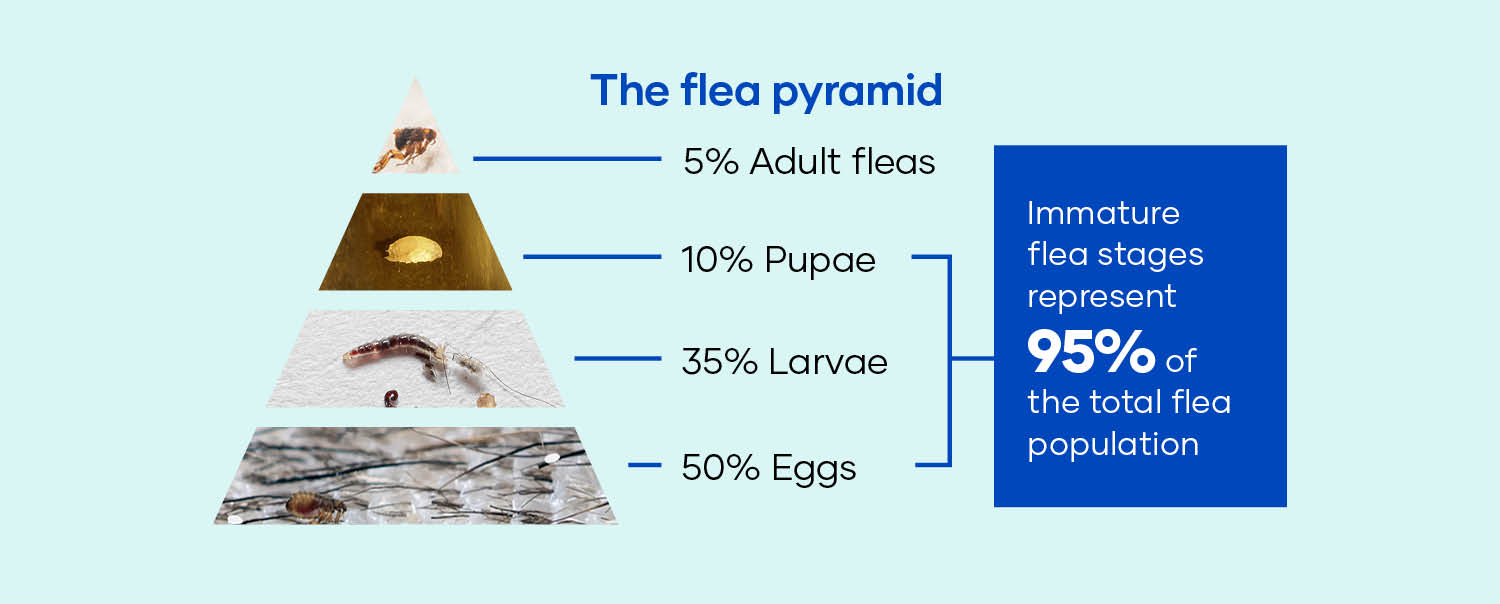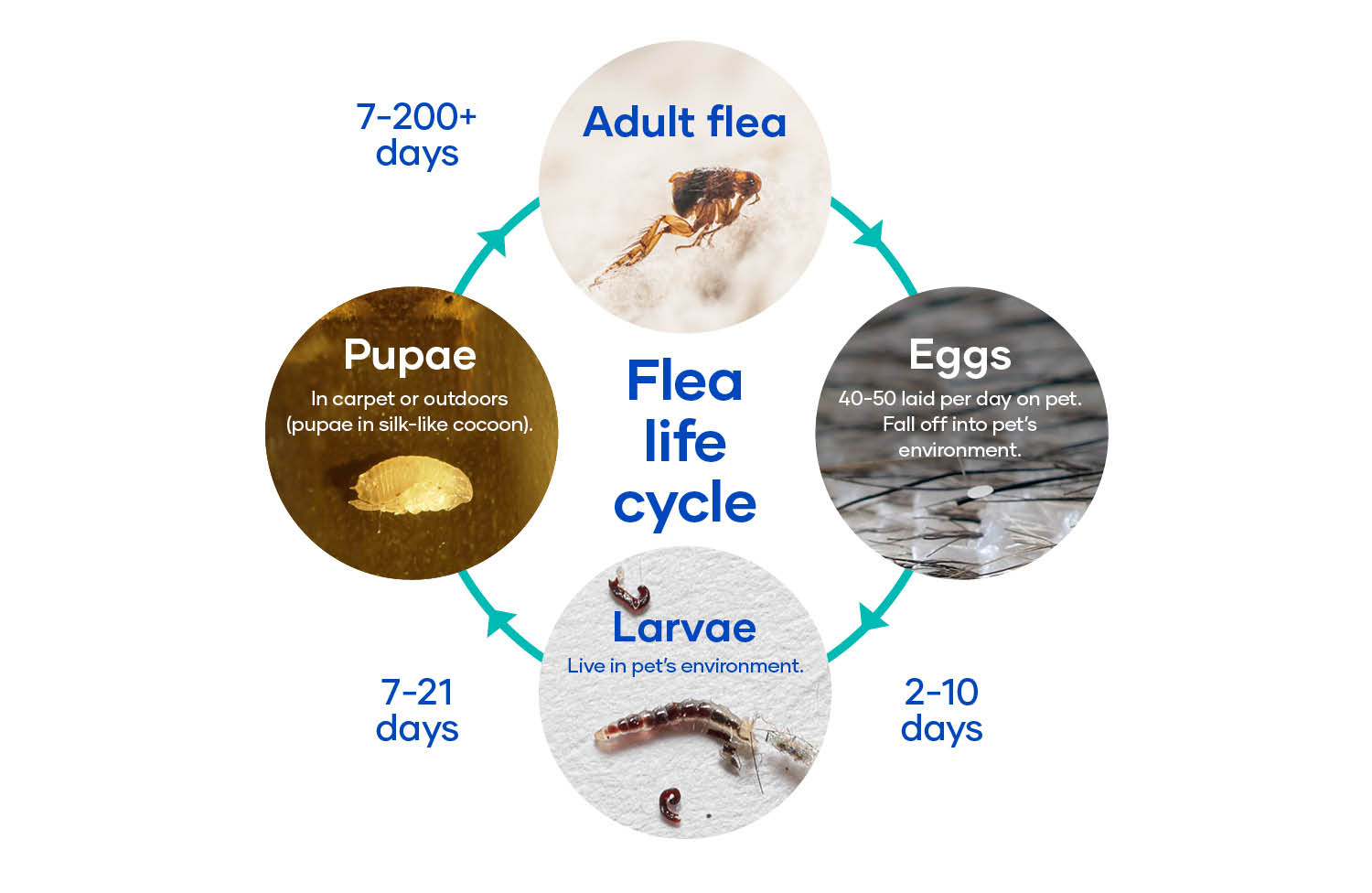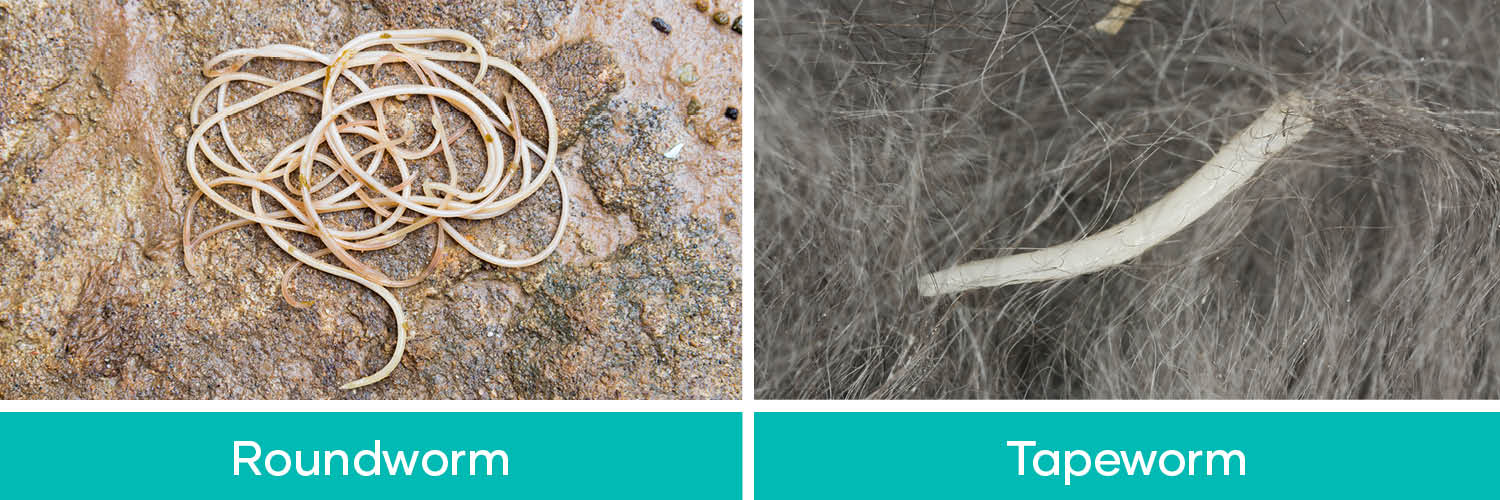With parasite control, prevention is always preferable to treatment. Pets with an undiagnosed infestation are at risk of spreading the infestation by shedding microscopic eggs and larvae into their environment.

Fleas
Fleas are the most common external parasite for pets and can be a problem at any time of the year, however they tend to be more active in the warmth of summer.
• A female flea can lay up to 2,000 eggs in her lifetime.
• 95% of fleas live in the environment (carpet, bedding, gardens etc) in various lifestages.
• Infestation may begin long before you are able to see them jumping and biting.
• Your pet is at risk of re-infestion if their environment is not treated at the same time.

Symptoms
Flea bites can be just as irritating to your pet’s skin as it is to ours, a single flea can bite your pet up to 400 times a day. Your pet may be scratching or grooming themselves a lot more than they usually would. You may also see fleas or flea dirt in your pet’s coat or around your house or garden.
Note: severe flea infestations can cause serious health problems including Flea Allergy Dermatitis or Anaemia in young or sick animals.

Treatment
We advise that year round flea control products are used on all pets in the first instance. If you do have a flea infestation it is important to treat the animal and the environment at the same time, ensure you wash their bedding in hot water too. There are a range of treatments for both pets and environments.
Pets
- Topical: spotted onto the back of the pet’s neck, the medication spreads over the animal’s entire body via oil glands. Topical treatments will repel and kill fleas working to interrupt the flea life cycle.
- Oral tablets: taking a tablet will work to disrupt the life cycle of fleas. Oral treatments will repel and kill fleas.
- Flea collars: there are a variety of flea collars on the market.
- Flea shampoo: can be effective, however, we recommend that you speak to your veterinarian for the best option for your pet.
- Flea sprays and powders: work to repel fleas and ticks, some sprays also provide treatment for biting and flea allergies. Be careful when using sprays around the eyes, nose and mouth as they can be irritating to both animals and humans.
Environment
Flea bomb: a continuous spray of pesticides which is toxic to fleas. Flea bombs are great for treating a large area however, it is important that you treat the entire house rather than just one room, including treating your car as well. Flea bombs can be hazardous to pets so it is important to keep them away while treatment is taking place.
Flea vacuum powder or spray: can be spread over your carpet and furniture. It is important that you treat all areas and appropriate furniture as a re-infestation can occur if something is missed, and don’t forget your pet’s bedding. Treatment will need to sit for a period of time, often overnight, before it is vacuumed up. Throw the vacuum bag away in an outdoor bin to prevent surviving fleas from escaping and re-infecting the house.

Worms
There are two main types of worms that affect our pets; Roundworms and Tapeworms. Worms may be transmitted from animal to human orally or via skin contact. Some Tapeworms are transmitted to pets via digesting fleas.
Symptoms
Commonly your pet will show no signs of a worm infestation, however in young animals Roundworms can cause:
• Diarrhoea
• Bloating of the tummy
• Failure to thrive
In cats, Tapeworm segments may be seen around their rear end.
Minimising the risk of infection
• Wash your hands after gardening or when playing with your pet.
• Regularly clear the lawn of pet faeces.
• Avoid playing or walking barefoot in faecally contaminated areas.
• De-worm your pet regularly.
• Wash fruits and vegetables thoroughly before consumption.
• Prevent your pet from hunting wild animals (including slugs and snails) and avoid raw meat and offal (see your veterinarian for advice).

Other parasites
Ear mites can be the cause of itchy ears in pets, but can be easily avoided with the use of specific flea treatments.
Demodex mites and Sarcoptic mange can cause a variety of symptoms. Demodex typically causes hair loss on the head, face and feet, but can be generalised in severe cases and is not normally pruritic (itchy).
Sarcoptic mange is far less common now, but it is intensely pruritic and is a potential zoonosis (it can affect people).
Both Demodex and Sarcoptic mange can be effectively treated with products from your local clinic.
Lice are seldom a problem if flea control is regularly used. There are two main types of lice which can affect your pet, biting lice and sucking lice. Usually white in colour, lice can sometimes be seen in your pets coat.
All animals in the household and the environment should be thoroughly cleaned if lice are found. If you feel your pet is at risk of, or has an infestation, talk to your veterinarian about the right product.
Cattle ticks can be a problem in some areas particularly in rural farming areas. The only cattle tick in New Zealand, haemaphysalis will favour cattle however, they can infest on a variety of animals including humans, horses and domestic pets.
There are some flea control products available that prevent the infestation of cattle ticks. If you feel your pet is at risk of, or has an infestation, talk to your veterinarian for advice.






